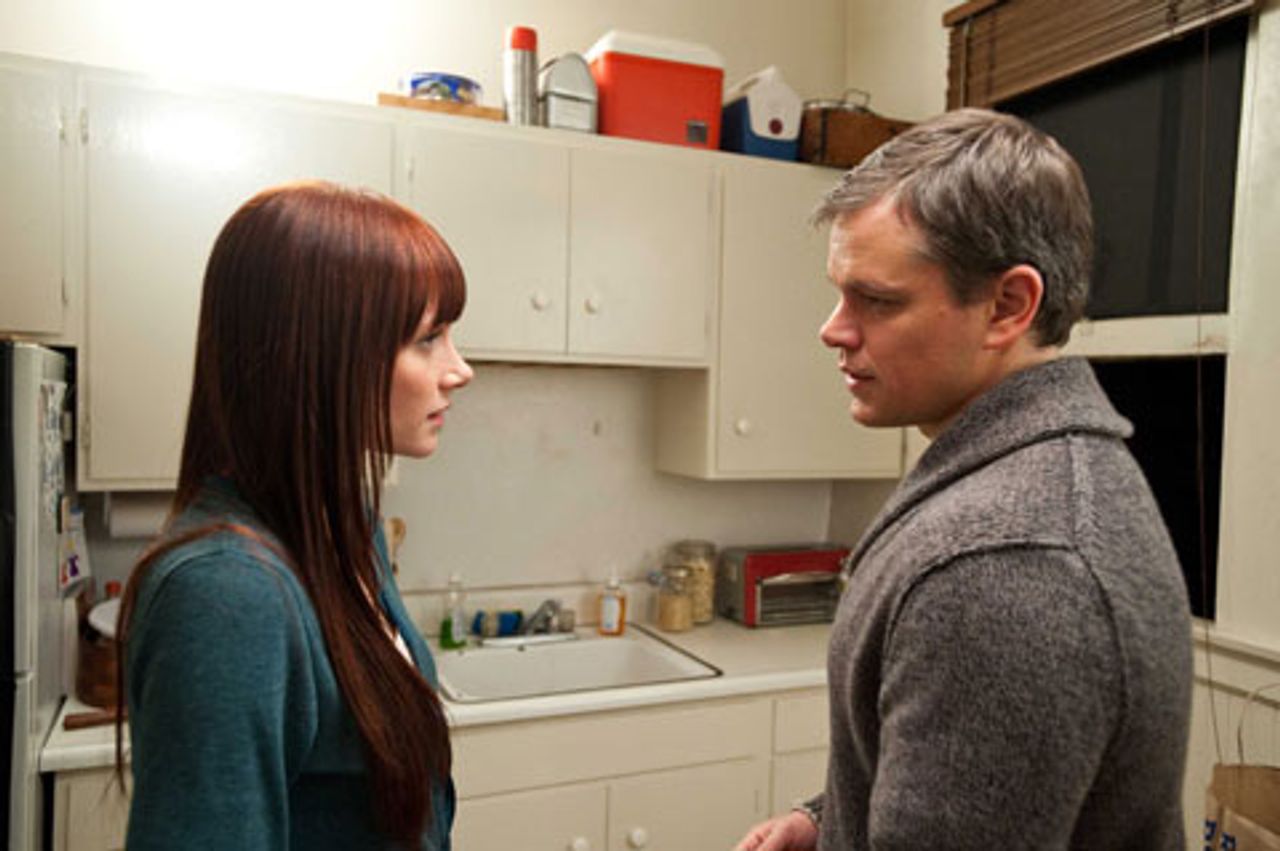Directed by Clint Eastwood, written by Peter Morgan
 Hereafter
HereafterHereafter is the latest film from veteran actor-director Clint Eastwood. It concerns three individuals whose lives—in one way or another—are all touched by death and who struggle to cope with personal tragedy.
French journalist Marie LeLay (Cécile de France) is vacationing in Thailand in December 2004 when the Indian Ocean tsunami strikes. Swept away by the water, she has a near-death experience in which she sees visions of an afterlife. Now convinced that there is life after death, she finds herself at odds with her friends and fellow journalists. Expected to write a book “chipping away the myth” of former French president François Mitterrand, Marie instead begins a book on her near-death experience, much to the dismay of her publisher.
In Britain, young twin brothers—Marcus and Jason (Frankie and George McLaren)—struggle to hide the seriousness of their mother’s drug addiction from local authorities so that social services will not take them away from her. When the stronger of the two brothers is killed in an accident, the other must carry on without him. He is placed in a foster home where he finds himself unable to move on from the trauma of his brother’s death.
In the US, George Lonegan (Matt Damon), is a psychic who has given up performing readings for clients. A life dealing with the suffering of other people has proven too difficult and he no longer wants the burden. He has taken a job in a factory and attempts to live a normal life, but his abilities continue to haunt him.
All of these central characters will struggle to cope with their traumas until events finally cause their paths to cross.
Like Eastwood’s Invictus (2009) and Changeling (2008) before it, Hereafter is a strangely unaffecting film. One watches the events play out on the screen without generally being moved by them. Eastwood’s direction is somewhat cold and detached. His actors do not communicate a great deal of complexity or depth.
Hereafter is to some extent a “message film.” Screenwriter Peter Morgan (The Last King of Scotland, The Queen) and Eastwood have a moral which they want their story to illustrate. A character seems to state the intended theme rather explicitly at one point. “A life that’s all about death,” he says, “is no life at all.” That is, one has to move on, pick oneself up by one’s emotional bootstraps, look forward, and not let oneself be consumed by tragedy. If only it were so simple!
Tormented by his visions of past tragedies in his clients’ lives, George is unable to find peace until he begins to see visions—brought about by hope, rather than psychic powers—of a possible future with Marie and decides to take a chance on her. Marcus, the surviving twin brother in London, must learn to be his own person and stop living in his late brother’s shadow.
Eastwood and Morgan’s work lacks the richness of exploration, of artists genuinely engaging with the world. Instead, the answers—in this case, rather shallow and banal—have all been figured out in advance, and all that remained was to plug the film’s characters and events into that template. One gets the sense that these details could have been interchangeable, with little about them feeling necessary. Marie is a journalist, George a factory worker. They might as well have been something else. It would not have changed the film in any meaningful way. A great deal feels contrived.
Significant and deeply tragic real-world events—the Indian Ocean tsunami, the 2005 bombing in the London underground, along with the massive numbers of layoffs brought about by the global economic crisis—which directly affect the character’s lives, come and go leaving little impression on the latter or the viewer. They exist only on the periphery of the story.
While her co-workers stand in horror in front of a television watching coverage of the London bombings, Marie remains preoccupied with her book, unable to discuss anything else. George is laid off from his job. He isn’t happy about it, but it doesn’t appear to make a dramatic impact on his life either. He goes to Europe instead, to tour the home of his favorite author, Charles Dickens. None of this feels like real life.
There is also the matter of psychic abilities and the “hereafter.” Two of the film’s characters, George and Marie, are able to have visions of an afterlife, bathed, of course, in all-encompassing white light. While the point of Eastwood’s film is not to argue for the existence of such things as life after death or psychic abilities—they are more plot devices than anything else—they do play a central role in the work.
At times, the story becomes difficult to go along with. One simply does not find oneself moved by the struggles of a writer to come up with yet another book on the afterlife or psychic powers when one believes in neither. One identifies more with the character’s antagonists, who refuse to believe in such notions and do not want to publish a work advocating them—an identification Eastwood has certainly not intended.
The entire film, ultimately, feels trivial. A movie that dealt seriously with the way in which people cope with tragedy, including the numerous social obstacles in their path to recovery, would be valuable. This is not that film.
